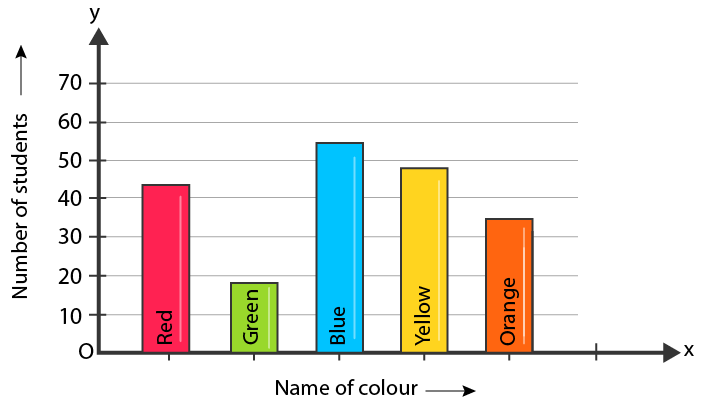The Brazilian Federal Revenue (Receita Federal do Brasil, RFB) plays a pivotal role in Brazil's economic landscape, acting as the primary tax authority and customs administration. Its functions extend far beyond simply collecting taxes; it's a key player in facilitating international trade, combating financial crimes, and ensuring compliance with tax laws across the vast and complex Brazilian economy. Understanding the RFB is crucial for businesses operating in Brazil, as well as for individuals navigating the intricacies of the Brazilian tax system.
Understanding the Structure and Mandate of the RFB

The Receita Federal do Brasil operates under the Ministry of Economy and is responsible for administering federal taxes, including income tax (Imposto de Renda), value-added tax (Imposto sobre Produtos Industrializados - IPI), social security contributions (Contribuição Social sobre o Lucro Líquido - CSLL and Programa de Integração Social/Contribuição para o Financiamento da Seguridade Social - PIS/COFINS), and import/export duties. The RFB's mandate is broad, encompassing tax collection, enforcement, customs control, and the prevention of tax evasion and money laundering. Its organizational structure is decentralized, with regional superintendencies (Superintendências Regionais da Receita Federal do Brasil) located throughout the country to oversee local operations and taxpayer services. These regional offices are responsible for auditing, collecting taxes, and providing guidance to taxpayers within their respective jurisdictions.
Key Taxes Administered by the RFB

Brazil's tax system is notoriously complex, and the RFB is responsible for administering a wide range of taxes that impact both businesses and individuals. Some of the most important taxes include:
- Corporate Income Tax (Imposto de Renda Pessoa Jurídica - IRPJ) and Social Contribution on Net Profit (CSLL): These are the main taxes on corporate profits. IRPJ rates vary depending on the company's profit regime (e.g., presumed profit, actual profit, or simplified profit). CSLL is also levied on corporate profits and is designed to finance social security.
- Individual Income Tax (Imposto de Renda Pessoa Física - IRPF): This tax is levied on the income of individuals residing in Brazil. The tax rates are progressive, meaning that higher income earners pay a larger percentage of their income in taxes.
- Value-Added Tax (VAT): While Brazil does not have a unified VAT system at the federal level, it has two primary consumption taxes:
- IPI (Imposto sobre Produtos Industrializados): This is a federal excise tax levied on manufactured products. The rates vary depending on the product category.
- ICMS (Imposto sobre Circulação de Mercadorias e Serviços): This is a state-level VAT levied on the circulation of goods and services. The rates vary significantly between states, adding to the complexity of the Brazilian tax system.
- Social Security Contributions (PIS/COFINS): These are federal contributions levied on gross revenue and are earmarked for social security funding. The rates and calculation methods can be complex, depending on the company's profit regime.
-
Import and Export Duties (Imposto de Importação - II and Imposto de Exportação - IE): These taxes are levied on goods imported into and exported from Brazil. The rates vary depending on the type of goods and trade agreements in place.
Navigating these taxes requires a thorough understanding of Brazilian tax laws and regulations. Businesses often rely on specialized tax advisors to ensure compliance and minimize their tax burden.
The RFB's Role in International Trade

The RFB plays a crucial role in facilitating international trade by administering customs controls, enforcing trade regulations, and collecting import and export duties. Its responsibilities include:
- Customs Clearance: The RFB is responsible for clearing goods imported into and exported from Brazil. This involves verifying documents, inspecting goods, and assessing duties and taxes. The agency has implemented electronic systems to streamline the customs clearance process and reduce processing times.
- Trade Compliance: The RFB enforces trade regulations, including rules of origin, anti-dumping duties, and countervailing duties. It also monitors imports and exports to prevent illicit activities, such as smuggling and intellectual property infringement.
- Trade Facilitation: The RFB actively promotes trade facilitation initiatives to reduce trade barriers and improve the competitiveness of Brazilian businesses. This includes simplifying customs procedures, harmonizing trade regulations, and promoting the use of technology in international trade.
- Combating Illicit Trade: A critical function of the RFB involves combating smuggling, counterfeiting, and other forms of illicit trade that can undermine legitimate businesses and harm the Brazilian economy. The agency works closely with other government agencies and international organizations to combat these activities.
Digitalization and Modernization Efforts

The RFB has been at the forefront of digitalization and modernization efforts to improve efficiency, transparency, and taxpayer services. Some of the key initiatives include:
- e-Social: This is a unified system for collecting labor, social security, and tax information from employers. It simplifies compliance with labor laws and reduces administrative burdens for businesses.
- Electronic Invoicing (Nota Fiscal Eletrônica - NF-e): This system requires businesses to issue electronic invoices for sales transactions. It improves tax compliance and reduces tax evasion by providing real-time information to the RFB.
- e-Financeira: This system requires financial institutions to report information on financial transactions to the RFB. It helps the agency to detect tax evasion and money laundering.
- Digital Taxpayer Services: The RFB offers a range of digital services to taxpayers, including online tax filing, payment of taxes, and access to tax information. These services make it easier for taxpayers to comply with their tax obligations and reduce the need for in-person visits to tax offices.
-
SPED (Sistema Público de Escrituração Digital): SPED is a comprehensive project that aims to digitalize all accounting and tax information, streamlining reporting requirements and improving data accuracy. It includes various modules, such as the Digital Accounting Bookkeeping (ECD) and the Digital Tax Bookkeeping (ECF).
These digitalization efforts have significantly improved the efficiency and transparency of the Brazilian tax system, making it easier for businesses to comply with their tax obligations and reducing the opportunities for tax evasion.
Challenges and Reforms

Despite its modernization efforts, the RFB faces several challenges. The complexity of the Brazilian tax system remains a major obstacle to compliance and economic growth. The multitude of taxes, varying rates, and complex regulations create significant administrative burdens for businesses and increase the risk of errors and tax disputes. Further, Brazil's constantly evolving tax laws necessitates continuous adaptation by companies operating within the country.
Several reforms have been proposed to simplify and modernize the Brazilian tax system. These include:
- Tax Reform Proposals: Several comprehensive tax reform proposals are currently being debated in the Brazilian Congress. These proposals aim to simplify the tax system, reduce tax complexity, and improve the competitiveness of Brazilian businesses. Some proposals include the creation of a unified VAT system to replace the existing ICMS and IPI taxes.
- Simplification of Tax Obligations: The RFB has been working to simplify tax obligations for small and medium-sized enterprises (SMEs). This includes reducing the number of tax returns required and simplifying the calculation of taxes.
- Increased Use of Technology: The RFB is continuing to invest in technology to improve efficiency and transparency. This includes using artificial intelligence and machine learning to detect tax evasion and improve risk management.
- Harmonization with International Standards: Brazil is working to harmonize its tax laws and regulations with international standards, such as those developed by the Organisation for Economic Co-operation and Development (OECD). This will help to attract foreign investment and reduce tax avoidance.
Addressing these challenges and implementing meaningful reforms is crucial for improving the business environment in Brazil and promoting sustainable economic growth. The success of these reforms will depend on political will, technical expertise, and effective communication with stakeholders.
Impact on Businesses Operating in Brazil

Understanding the RFB and the Brazilian tax system is essential for businesses operating in Brazil. Failure to comply with tax laws can result in significant penalties, including fines, interest, and even criminal charges. Some key considerations for businesses include:
- Tax Planning: Businesses should develop a comprehensive tax planning strategy to minimize their tax burden and ensure compliance with tax laws. This should include analyzing the various tax incentives and exemptions available and optimizing the company's tax structure.
- Compliance: Businesses must comply with all applicable tax laws and regulations, including filing tax returns on time and paying taxes accurately. This requires maintaining accurate records and staying up-to-date on changes in tax laws.
- Risk Management: Businesses should assess and manage their tax risks, including the risk of tax audits and disputes. This requires implementing strong internal controls and seeking professional tax advice.
- Transfer Pricing: Multinational companies operating in Brazil must comply with transfer pricing rules, which are designed to prevent companies from shifting profits to low-tax jurisdictions.
- Tax Incentives: Brazil offers a range of tax incentives to attract investment and promote economic development. Businesses should explore these incentives to reduce their tax burden and improve their competitiveness.
Navigating the Brazilian tax system can be challenging, but with proper planning, compliance, and risk management, businesses can successfully operate in Brazil and contribute to the country's economic growth. Seeking guidance from qualified tax advisors is highly recommended to ensure compliance and optimize tax strategies.
The RFB and Combating Financial Crimes

Beyond tax collection and trade facilitation, the Brazilian Federal Revenue plays a significant role in combating financial crimes, particularly money laundering and tax evasion. Its specialized units work to identify and investigate suspicious financial transactions, collaborating with other government agencies and international organizations to disrupt criminal networks. The RFB utilizes sophisticated data analysis techniques and intelligence gathering to detect illicit financial flows, including those related to corruption, drug trafficking, and organized crime. By strengthening its capacity to combat financial crimes, the RFB contributes to a more transparent and secure financial system, protecting Brazil's economy from the harmful effects of illicit activities. This includes monitoring cross-border financial transactions and enforcing anti-money laundering regulations.
Looking Ahead: The Future of the RFB

The Brazilian Federal Revenue continues to evolve in response to changing economic conditions and technological advancements. Future priorities include:
- Further Digitalization: Continued investment in digital technologies to improve efficiency, transparency, and taxpayer services. This includes expanding the use of artificial intelligence and machine learning to detect tax evasion and improve risk management.
- Simplification of Tax Laws: Efforts to simplify tax laws and regulations to reduce complexity and improve compliance. This includes consolidating taxes and harmonizing regulations across different levels of government.
- International Cooperation: Increased cooperation with international organizations and other countries to combat tax evasion and promote international tax cooperation. This includes sharing information and coordinating enforcement efforts.
- Focus on Taxpayer Education: Strengthening taxpayer education programs to improve tax compliance and reduce errors. This includes providing clear and accessible information on tax laws and regulations.
The RFB's ability to adapt and innovate will be crucial for ensuring the long-term sustainability of the Brazilian tax system and promoting sustainable economic growth. By embracing technology, simplifying tax laws, and fostering international cooperation, the RFB can continue to play a vital role in Brazil's economic development.

No comments:
Post a Comment